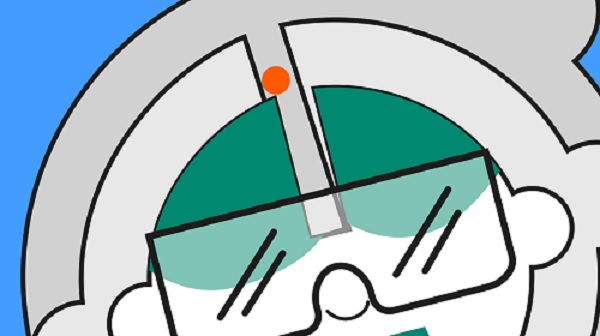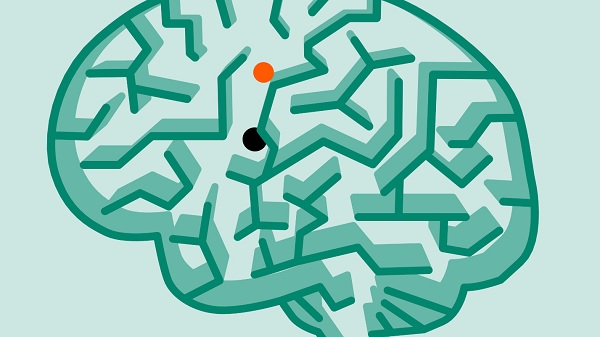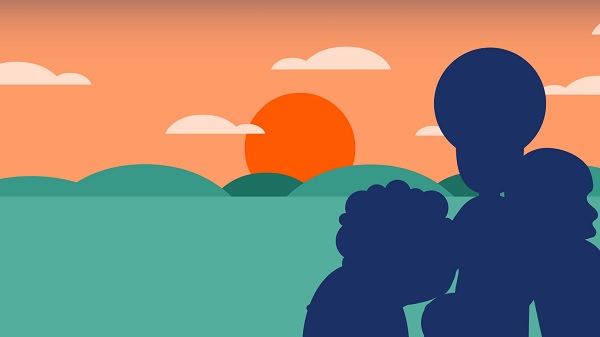Before I went, I had preconceptions about what people can do. But I met doctors there who could run a diagnosis without modern tools. They don’t have things like MRIs but they can look at you, read your symptoms and tell you what illness you have. I was exposed to different ways of thinking and solving problems
When you think about it, never say never is a pretty good mantra to live by. A concise and alliterative reminder to remain curious and open to possibilities. Daria Donati, head of business development and strategic technology partnerships at Cytiva, has been driven by curiosity her whole career. And a fascinating one it’s been.
On a mission to make a difference, Daria has lived and worked around the world. Her journey began at university in Italy, then continued while working for the World Health Organization in Central Africa. Now, at Cytiva, she’s at the forefront of the battle against COVID-19; bringing businesses and governments together with ambassadorial aplomb.
Daria’s many achievements include a master's degree, two PhDs (experimental medicine, and biotechnology and transplant immunology), and the title of European businesswoman of the year in the category Life Sciences. Not to mention her pivotal role in the development of Cytiva’s KUBio solution, the world’s first modular biomanufacturing facility.
We caught up with Daria recently to find out more about her quest to save lives. She revealed where it all began, how the pandemic has taught the world to do science differently, and some valuable life lessons for those starting out in the sector.
When a person is motivated by curiosity, they often encounter surprises. Tell us about a time your preconceptions were challenged.
Before I went, I had preconceptions about what people can do. But I met doctors there who could run a diagnosis without modern tools. They don’t have things like MRIs but they can look at you, read your symptoms and tell you what illness you have. I was exposed to different ways of thinking and solving problems. I realized it doesn't matter where you come from, if you are curious and interested in science you can make a change.
You’ve had a remarkable career. When you look back, is there anything unexpected about the path you’ve taken?
My interest in science started very early. I always thought “I want to be a scientist” and when I got to university I was extremely focused on following a specific path. I went into immunology to try and understand how diseases worked. I said I’d never work on viruses. But suddenly I discovered myself completely embedded in the virus world.
Then I told myself I’d never work with parasites. After a few years I was working on malaria and the immunological responses to parasites. At that point I told myself I’m really an academic. I’m interested in the fundamental questions of science, I’ll never work in the business world. And look what happened!

You’ve been heavily involved in Cytiva’s response to COVID-19, helping to bring governments and businesses together to develop vaccines. What has that experience been like?
The COVID crisis has allowed me to pull together all the things I’ve learnt through my life and career. It's unusual to find people who have a strong background in science, an understanding of the business world, have worked with non-governmental organizations and have a grasp of global manufacturing. So, I found myself in a great position to help, bringing people together and making things happen.
The pandemic has reminded everyone of the importance of collaboration. We are faced with a global challenge that no one can solve on their own. The only way to tackle it is by getting the right people around the table. People with different backgrounds, experience, knowledge. Different pieces of the puzzle.
My goal was not a commercial goal, it was not a medical goal, it was really the health of the people. Solving a problem that is having a terrible impact on health, not only our own health, but also those closest to us.
This means finding out how to develop, manufacture and get the treatments and vaccines to the people who need them most as quickly as possible. For the first time the global community decided to break through the barriers, the silos, separating business, governments and the academic world.
In science and business there has always been an interest in establishing partnerships. But each party usually acts in their own self-interest. In this case, when there is a single goal, you get very fast science. I don't think governments and industry have ever been so close. It’s been amazing to see.
Vaccines usually take years to develop. How come the process has been so much faster this time?
I learned very early in my career that you cannot do it alone, especially with vaccine development. There are so many different steps and disciplines involved that you have to collaborate, talk to each other, exchange information.
Every disease is different. There is never one solution that can be applied, copy and paste, to two different diseases, microbes or infectious agents. There are many different routes, you have to be open to possibilities. You want to get to a single vaccine, or maybe multiple vaccines, but working together is essential. If all the links in the chain are not connected then you cannot get to the final result.
In a pandemic, an outbreak of infectious disease, the only way to limit the spread is to stop the transmission. And to stop the transmission, one of the best tools you have is vaccination. Vaccines usually take 10 or 15 years to develop. With diseases like HIV and malaria, we’ve been trying for many years to develop vaccines and not been successful. That gives you an idea of how extraordinary this effort has been. To shrink the timeline and deploy as fast as possible to save lives.
Now we’re doing real-time science in a way I’ve not experienced before. People get sick, we collect the data and publish it in record time so other people around the world can immediately react and move their research forward.
We're advancing each and every step. Compressing the development timelines while maintaining the safety and quality of the treatments. This global challenge has helped everybody to stretch their capabilities in ways that have never been seen before.

When you consider scientists as a group, although they have infinite variety as individuals, what traits do you think they share?
Curiosity is behind every scientific discovery, I would say. But how people use their curiosity varies. I'm driven by a curiosity about the world in quite a broad sense. In immunology, in biology, you can apply your knowledge to many different areas. Other scientists are more focused.
The other thing is that scientists are always after data that can corroborate a belief or a theory. I collect the data then I use that information to determine what action I take. Once you think like that, it’s very hard to get out of.
Also, I think the drive to discover is independent from where you are or the type of science you do. It’s deeper than that. After starting on the path of science, certain people continue in academia, others apply it to business, some go and sail around the world. But I think all scientists are driven by the thirst for knowledge and a need to understand how things work.
After years in the worlds of academia and public health, you decided to move into the corporate sector. Have there been any particular highlights?
I joined GE Healthcare, now Cytiva, just after the avian flu outbreak that thank god didn't turn out to be so widely spread. At that time, governments were asking for our help to set up facilities in their countries to produce vaccines and drugs for their own people. We didn’t have the complete answer. We were experts in all the elements that go into a facility, but never ventured in taking care of the building, the shell itself.
Everywhere we heard the same questions: How much will this cost, how long will it take to set up? The only way to answer these questions was to enter a long process of design with an engineering company, and perhaps after a year get to an estimated value, in the best case with 10% fidelity on building cost and time frame. So we decided to challenge ourselves. Let's assume we can do anything. What can we do to solve the problem? How can we help these customers?
We thought, what if we create a fully functional facility and treat it like a product. A box that meets the highest industry standards. It’s pre-packaged, you can go online, press a button and get it delivered to you incredibly fast. I was leading the team that went beyond the boundaries of what the company usually does in order to create this product. We called it KUBio and it’s now used around the world, making drugs and savings lives.
All the steps in my career have been driven by the thrill of learning, meeting new people and challenging myself. Joining the corporate world meant I could use all my experience— of science, working with NGOs and governments, building programs to advance health in developing countries—in a new environment with new tools at my disposal.

Finally, you’ve done many different and interesting things in your career. What has remained constant throughout? And what life lessons do you have for budding young scientists?
My uncle in France used to tell me that if I decided to go into coffee, I would want to know the different ways people grow, harvest, roast, brew and sell it. That curiosity, looking at the same problem from different perspectives, hasn't changed. But over the years the area in which I apply my curiosity has evolved.
In terms of life lessons, the students at the Karolinska Institute and KTH Royal Institute of Technology where I occasionally give lectures, often ask me what is the secret to doing well in science. My first answer is never say never. Whatever you decide you will never do, you will find yourself doing tomorrow. The second is never give up. There is never only one solution to a problem but thousands. Go after what you believe is right and you will find the answer. The driving light at the end of the tunnel for me has always been, am I actually making a difference? That’s what makes me go to work every day.